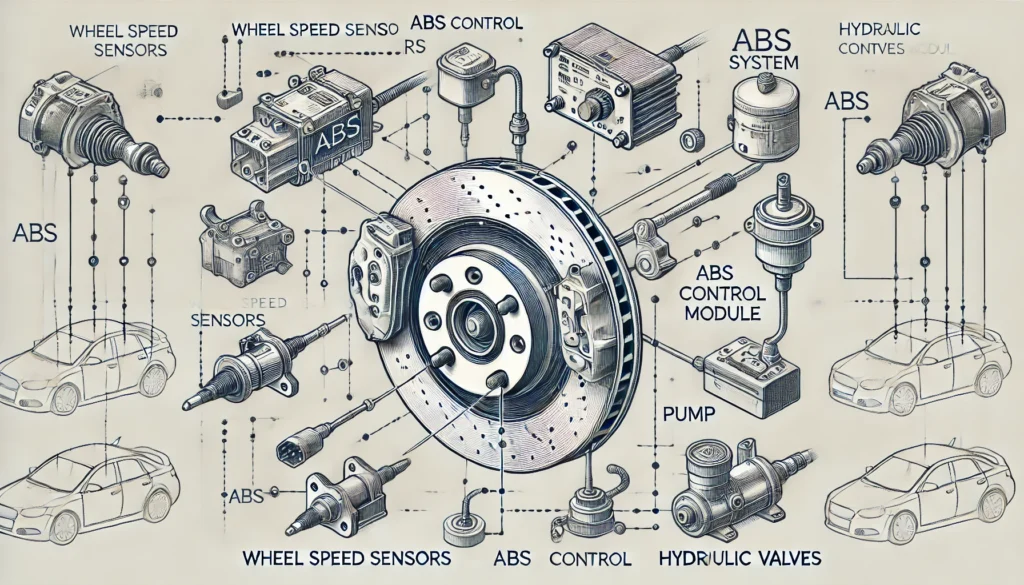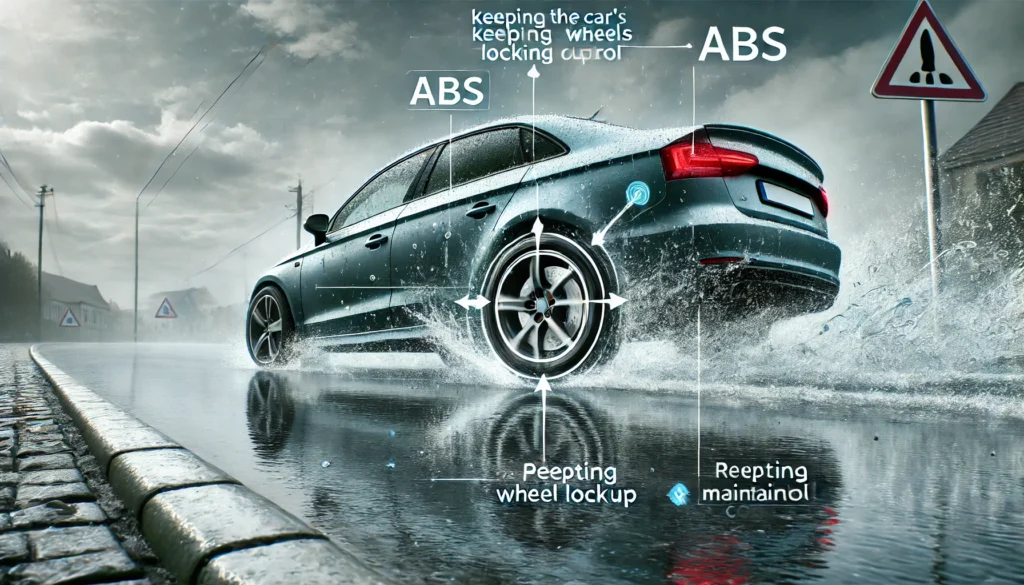The Anti-lock Braking System (ABS) is a crucial safety feature in modern vehicles designed to prevent the wheels from locking up during braking, thus maintaining steering control and reducing stopping distances. When an ABS fault occurs, it can significantly impact driving performance and overall safety. Understanding these effects can help you respond appropriately and ensure your vehicle remains safe to drive.
Understanding ABS
The ABS system consists of several key components that work together to maintain vehicle control during emergency braking:
- Wheel Speed Sensors: Monitor the speed of each wheel and send data to the ABS control module.
- ABS Control Module: Processes data from the wheel speed sensors and controls the hydraulic valves.
- Hydraulic Valves: Regulate brake pressure to prevent wheel lockup.
- Pump: Restores pressure to the hydraulic brakes after the valves release it.

Impact of an ABS Fault on Driving Performance
- Loss of Steering Control During Braking:
- Effect: One of the primary functions of ABS is to maintain steering control during emergency braking by preventing wheel lockup. An ABS fault can result in the wheels locking up during hard braking, causing a loss of steering control and increasing the risk of skidding.
- Scenario: For example, if you need to make a sudden stop on a wet or icy road, the inability to steer around obstacles due to wheel lockup can lead to an accident.
- Increased Stopping Distances:
- Effect: ABS helps to reduce stopping distances by modulating brake pressure to prevent wheel lockup. When the ABS is faulty, stopping distances can increase, especially on slippery or uneven surfaces.
- Scenario: In emergency situations, the inability to stop quickly can result in collisions that might have been avoided with a functioning ABS.
- Reduced Vehicle Stability:
- Effect: ABS enhances vehicle stability during braking by ensuring that the wheels maintain traction. A malfunctioning ABS can lead to uneven braking force distribution, causing the vehicle to become unstable, especially during abrupt stops or when braking on uneven surfaces.
- Scenario: Driving on a gravel road with a faulty ABS can cause the vehicle to become difficult to control during sudden stops.

- False Sense of Security:
- Effect: Drivers accustomed to relying on ABS for safe braking may experience a false sense of security if they are unaware that the ABS is faulty. This can lead to overconfidence in the vehicle’s braking capabilities, resulting in risky driving behavior.
- Scenario: A driver might brake late, expecting the ABS to prevent skidding, only to find that the system is not working, leading to an accident.
- ABS Light Warning:
- Effect: When the ABS light illuminates, it indicates a fault within the system. This warning should prompt immediate attention to avoid compromised braking performance. Ignoring the ABS light can lead to more severe problems and increased repair costs.
- Scenario: Continuing to drive with the ABS light on without seeking repair can result in the ABS system completely failing when it is needed the most.
Steps to Address an ABS Fault
- Diagnose the Issue:
- Use an OBD-II scanner to read error codes related to the ABS system. These codes help identify the specific component causing the fault.
- Inspect and Repair Components:
- Check the wheel speed sensors, wiring, and ABS control module. Clean or replace faulty sensors, repair damaged wiring, and replace or reprogram the control module if necessary.
- Test the System:
- After repairs, test the ABS system to ensure it is functioning correctly. Reset the ABS light using the OBD-II scanner.
- Seek Professional Assistance:
- If you are unable to diagnose or repair the ABS fault, consult a certified mechanic who has the tools and expertise to address the issue safely and effectively.
Conclusion
An ABS fault can significantly affect driving performance by reducing steering control during braking, increasing stopping distances, and compromising vehicle stability. Addressing ABS faults promptly is essential for maintaining vehicle safety. By understanding the impact of ABS faults and taking appropriate action, you can ensure your vehicle remains safe and reliable on the road.